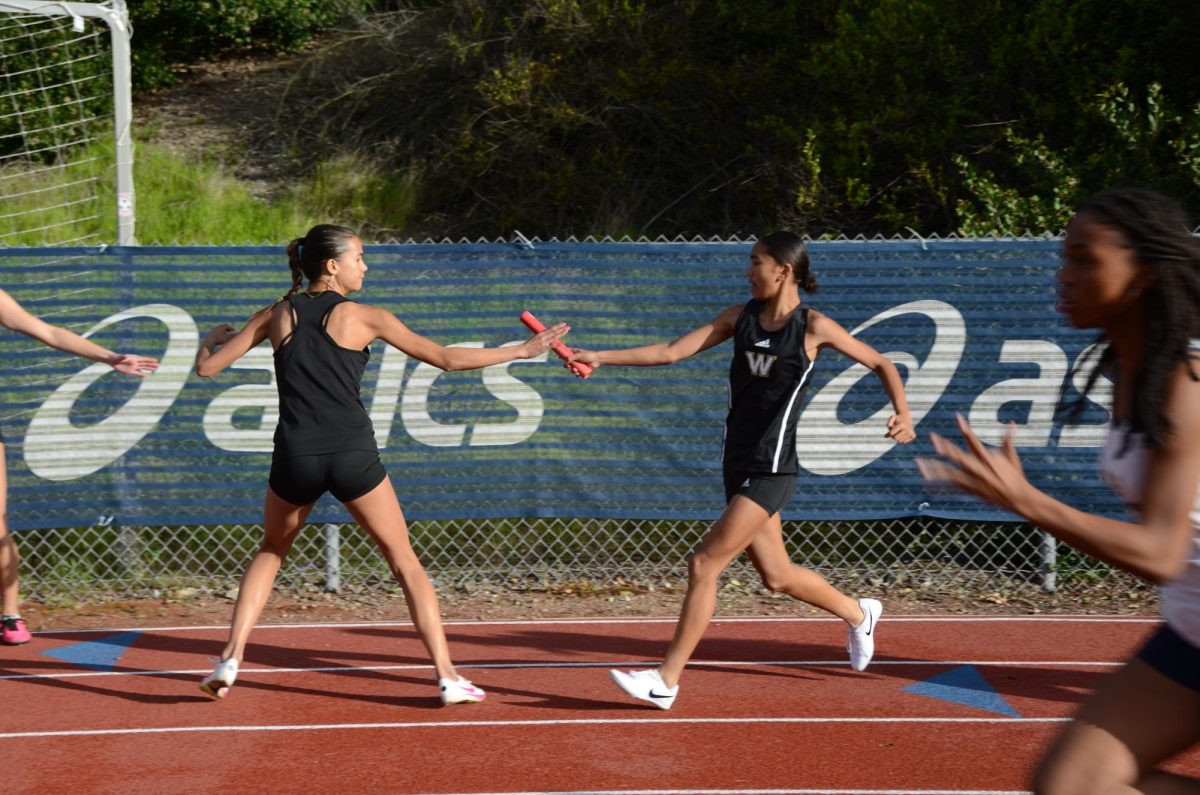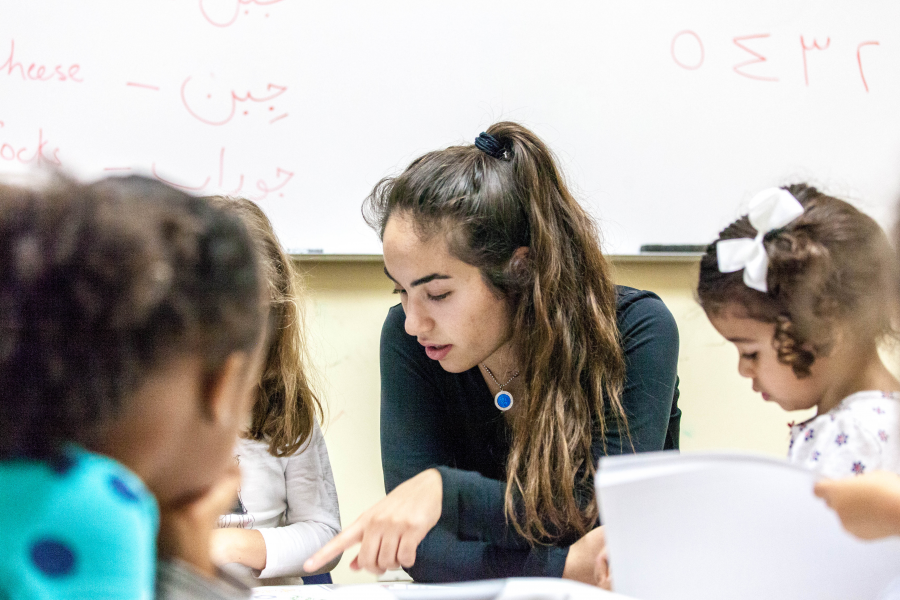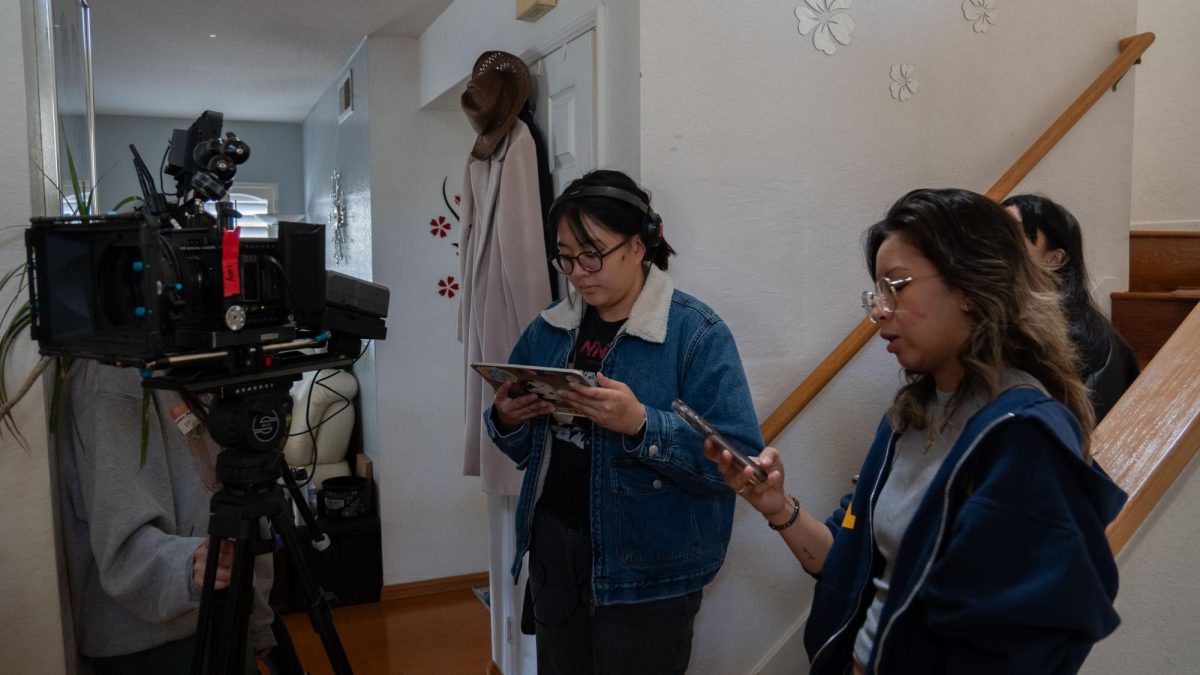When discussing nationality, Gilare Zada (12) is very clear on one thing—she isn’t American. Rather, she’s Kurdish-American.
The Kurdish people, who have been denied sovereignty for centuries, have a tough history. From suffering from persecution in countries like Turkey, Syria and Iraq, to being implicated in the Syrian Civil War, the Kurdish people have struggled.
Staying grounded in her roots despite her people’s tumultuous history, Zada identifies very strongly with her Kurdish heritage. So when the opportunity came up to tutor Kurdish refugees, she jumped at the chance to help her people.
Although she now tutors 10 elementary and middle-school-aged children each Saturday at her mosque, Zada didn’t start off with those numbers. During the summer before her junior year Zada first tried to help just a single family who had just come from Syria to adjust to life in the United States. Zada’s mother connected her with the family, who had started attending the same mosque as Zada and her own family.
“It started with just, ‘Yeah sure, I’ll help this family,’” Zada said. “A lot of [incoming refugees] are nervous, they feel like outsiders and it really hurt me because I have a relatively happy, privileged life compared to them, and I have so many things I could help them with. For instance, I would go help them out and realize that a lot of them didn’t speak English.”
After helping the initial family adjust by teaching them basic English, tutoring their children, or helping them with everyday tasks, like sorting through bills, Zada realized she could assist many others in her community, and started working with more refugees, specifically tutoring children, that summer.
“After doing that and seeing how it changed [the family], it really inspired me because I have that link because my parents were born in Syria,” she said. “I realized, ‘There’s a bunch more kids that need help. Why don’t we make a central place [at the mosque] for them to come?’”
At first, Zada and her tutees didn’t get along perfectly. When she approached them upbeat and ready to teach, they responded to her outstretched hand with clenched fists.
“In the beginning, when I first started meeting all of them, they didn’t really like me because I was super positive and they really didn’t reciprocate the vibes,” Zada said. “One of the students told me that it was because I was avoiding the fact that they had just come from Syria. He told me, ‘You’re not making things better by pretending this situation doesn’t exist’ and that I shouldn’t sweep it under the rug.”
As she acknowledged their situations and didn’t shy away from mentioning the Syrian Civil War, Zada became closer to the children and learned about many of their stories and backgrounds. From stories of missing family members to those of burned down schools, Zada discovered their histories, and, as she opened herself up to listen, the children told her more.
“A lot of the [stories I heard] were really sad things that 8-year-olds should never have to worry about,” she said. “It’s really depressing stuff but at the same time this is real life for them. One kid, his sister, they’d been separated, and he told me once, “At night I dream about where my sister is.”
As time went on, Zada and the children became comfortable with each other. Going beyond pure academics and language skills, the children, new to a foreign culture, were interested in learning more about American culture itself.
“They look forward to someone who understands them,” Zada said. “I feel like a link between refugees and the people here. I teach them cultural things, like social cues. The vernacular in America is so weird too; one of [the children] once asked me what ‘lit’ meant.”
In exchange, the children gave her pieces of their own culture, like the games they played in the pre-Civil War streets.
Of the children Zada tutored, not many of them have stayed with her the two years that she’s been working with refugees.
“Obviously, I would like to see the same kids over and over again and it’s sad that I’ll probably never see them again, but at the end of the day, I don’t want to be selfish,” she said. “As long as I’ve helped them and they’ve taken some things that I’ve hopefully taught them, I’m happy.”
One of the students who has stayed with Zada goes to Black Mountain Middle School. Having moved to the United States from Syria two years ago, she’s worked with Zada for about as long as she’s lived in the United States.
“I’m really excited to see where [she] goes,” Zada said. “It’s so interesting to me because she has all A’s, [even though] in Syria they shut the schools down and she missed three years of school and then she came to America and had to learn a different language.”
Zada’s experiences with the refugee children have encouraged her to not only go further with aiding underprivileged youth, but to also spread awareness of the situation in Syria.
“I learned you could change someone’s life in a matter of weeks and you can bond in such a short amount of time, and it isn’t just because you speak the same language,” she said.
At the end of the day, however, it all comes back to the kids she started tutoring at the beginning of her junior year summer.
“This isn’t about me,” Zada said. “It’s my job to help them. I just want to see where they end up in five years, because they’ll be able to create change. They’ve been through so much and they feel like family now.”
When they’re questioned about their nationality in the future, Zada said she hopes that they don’t respond indicating that they’re Kurdish, but rather that they’re Kurdish-American with each other. Going beyond pure academics and language skills, the children, new to a foreign culture, were interested in learning more about American culture itself, so that they could fit in at their schools.
“They look forward to someone who understands them,” Zada said. “I feel like a link between refugees and the people here. Its not just academic as well, I teach them cultural things that help them adjust to the culture here, like social cues. The vernacular in America is so weird; one of [the children] once asked me what ‘lit’ meant.”
In exchange, the children gave her pieces of their own culture that helped Zada understand the world they came from, like the games they played in the pre-Civil War streets.
“I think it’s the little things that makes [tutoring] worth it for me,” Zada said. “They try to teach me little things from Syrian, Kurdish, or Yazidi culture, and a lot of the time I don’t get it and so they explain how important it is to them.”
Of the children Zada tutored, not many of them have stayed with her the two years that she’s been working with refugees, as many of their housing situations are unstable and they often have to move far away from the mosque.
“Obviously, I would like to see the same kids over and over again and it’s sad that I’ll probably never see them again, but at the end of the day, I don’t want to be selfish,” she said. “As long as I’ve helped them and they’ve taken some things that I’ve hopefully taught them, I’m happy.”
One of the students who has stayed with Zada goes to Black Mountain Middle School. Having moved to the United States from Syria two years ago, she’s worked with Zada for about as long as she’s lived in the United States.
“I’m really excited to see where [she] goes,” Zada said. “It’s so interesting to me because she has all A’s, [even though] in Syria they shut the schools down and she missed three years of school and then she came to America and had to learn a different language.”
Zada’s experiences with the refugee children have encouraged her to not only go further with aiding underprivileged youth, but to also spread awareness of the situation in Syria.
“I learned you could change someone’s life in a matter of weeks and you can bond in such a short amount of time, and it isn’t just because you happen to speak the same language,” she said.
At the end of the day, however, it all comes back to the kids she started tutoring at the beginning of her junior year summer.
“This isn’t about me,” Zada said. “It’s my job to help them. I just want to see where they end up in five years, because they’ll be able to create change. They’ve been through so much and they feel like family now.”
When they’re questioned about their nationality in the future, Zada said she hopes that they don’t respond indicating that they’re Kurdish, but rather that they’re Kurdish-American.





